Tanzanian engineer Kadeghe Goodluck Fue is a 2021-2023 SG-NAPI grant awardee who has developed a smartphone application that assists farmers, advising when it's time to water their crops or add fertilizer. The app will help farmers ensure that they do the right interventions when needed, saving time and money.
The use of mobile phones among smallholder farmers in Tanzania is increasing agricultural productivity, boosting their incomes, and promoting the transition to precision agriculture. After earning a PhD in agricultural robotics from the University of Georgia and specializing in artificial intelligence in agriculture, Fue has developed an interest in farming techniques. He is now an expert in digital and data-driven agriculture, and aims to bring about changes for the betterment of Tanzanian agriculture.
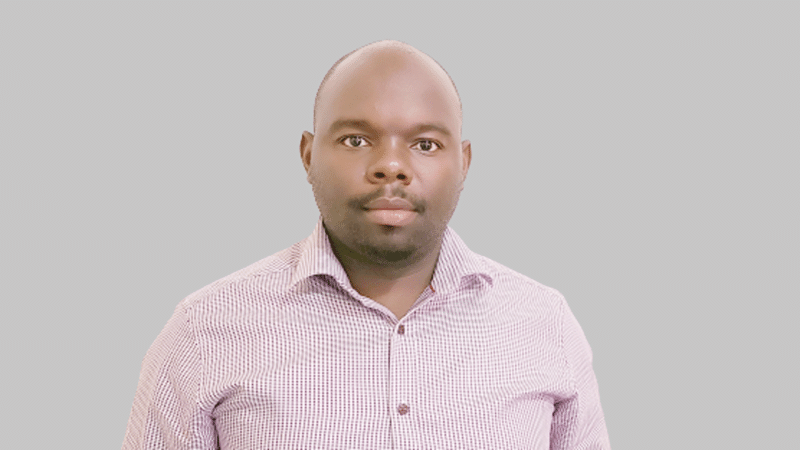
"The SG-NAPI grant allowed me to purchase the equipment I needed to set up my precision agriculture laboratory. Now I have the capability to build site-specific technology such as robotics systems and automated devices to help Tanzanian farmers," he said.
The Seed Grant for New African Principal Investigators (SG-NAPI) was launched with the support of the German Federal Ministry of Education and Research (BMBF). Its aim is to strengthen the capacity of scientists from science and technology-lagging countries in Africa, in particular those who are affiliated to institutions lacking research facilities.
Precision agriculture for development
Precision farming is an agricultural approach that uses real-time observation of soil and crop conditions to plan out irrigation, fertilization, and harvesting. It employs artificial intelligence, big data analysis, and high-resolution satellite images to reduce the environmental impact of agriculture and promote sustainable production.
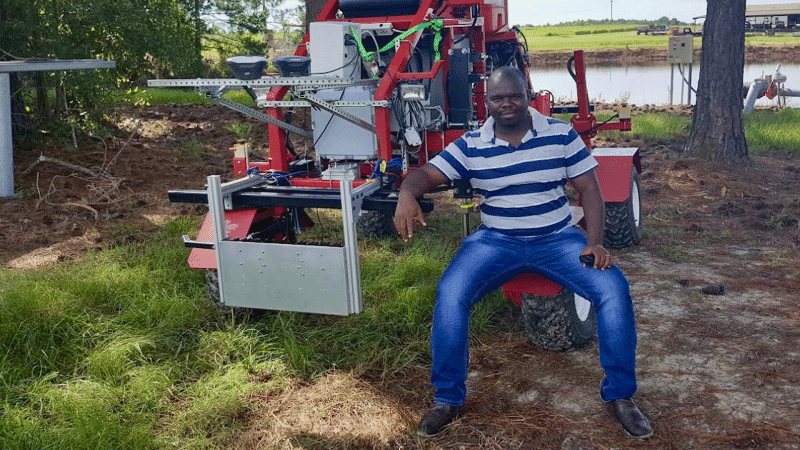
"Sustainability is increasingly important. Therefore, the future of agriculture in Tanzania must rely on precision farming if we wish to make better decisions and maximize production," explained Fue.
Since 2022, he is a principal investigator at the Electronics and Precision Agriculture Lab (EPAL), a laboratory focused on providing electronic devices for precision agriculture, at Sokoine University of Agriculture (SUA). The main goal of his lab, based in Morogoro, Tanzania, is to drive a transformative shift in agriculture by promoting digital solutions for the farmers' needs. In addition, he and his team empower farmers through public presentations and the promotion of their technologies.
Mapping the soil's chemical content, inspecting the crops, evaluating irrigation and drainage conditions, and providing fertilization recommendations are critical to obtaining a good yield. Satellite remote sensing coupled with the use of unmanned aerial vehicles — known popularly as drones — are efficient tools to estimate all these requirements.
However, "Most Tanzanian farmers cannot afford to rent expensive devices and technologies to improve their businesses. Hence, they must resort to alternative low-cost solutions to cater to their needs," said Fue. Fortunately, most of the farmers now own smartphones that can be used as an alternative guide to the current practice, he added. Hence, his idea is to develop a user-friendly app that orients farmers' decisions.
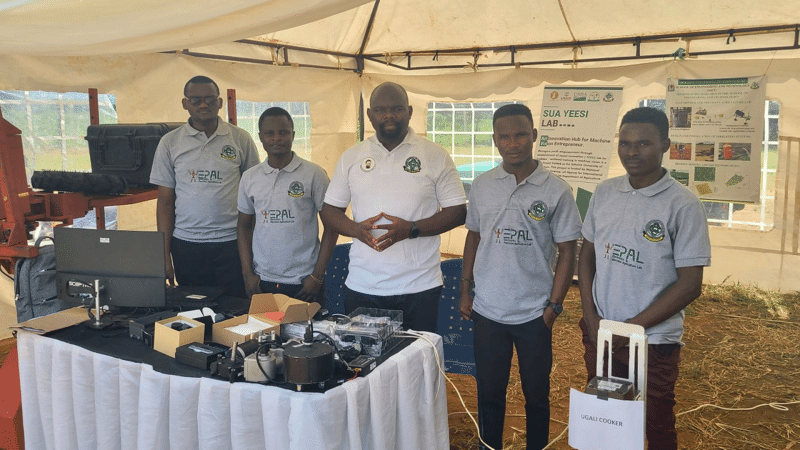
The irrigation scheduling app that Fue devised is called Mwagilia, a Swahili word for 'irrigate'. Mwagilia is the final element of a process that starts with remote sensing satellites acquiring geographical data. Then, artificial intelligence-based systems use this data to draft maps of the local conditions, and eventually, Mwagilia decodes the maps, providing an interpretation of the information.
"Through his mobile phone equipped with my app, a farmer can get real-time recommendations for irrigation schedules and fertilizer applications, in his own language. The app was made possible thanks to the support I received from SG-NAPI, which I'm grateful to," said Fue.
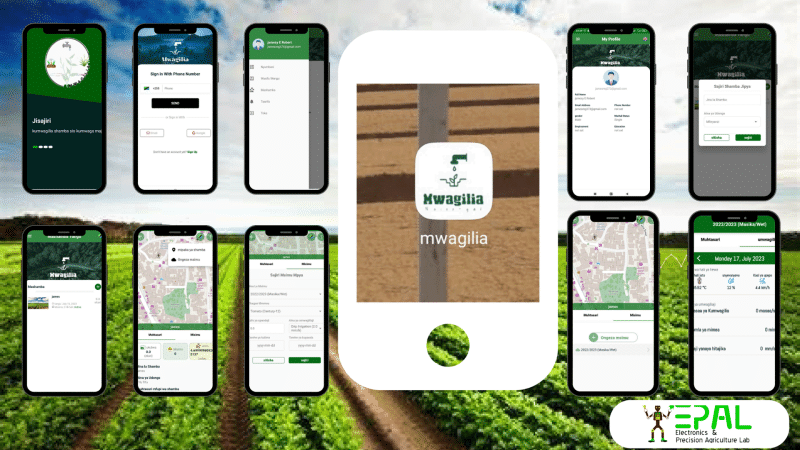
At the moment, his app is almost fully operational, as the fertilizer applications still need some adjustments. However, Fue said, it will be in place in a few months.
The innovation has not been officially promoted among the farmers, yet, because Fue is considering an institutional launch event. However, his app appeared in a TV programme called Amka Kumekucha, on Azam TV, which is the mainstream television channel in Tanzania. In addition, on 8 August, this year, SUA organized an informal presentation of Fue's app at a local annual farmers' celebration that recognizes the vital contribution of farmers to the Tanzanian economy.
The event is called Nane Nane, meaning 'eight eight' in Swahili. It refers to the holiday’s occurrence on the eighth day of the eighth month of the year, and celebrates the contribution of farmers to the Tanzanian economy. During Nane Nane, agricultural fairs are organized all over the country.
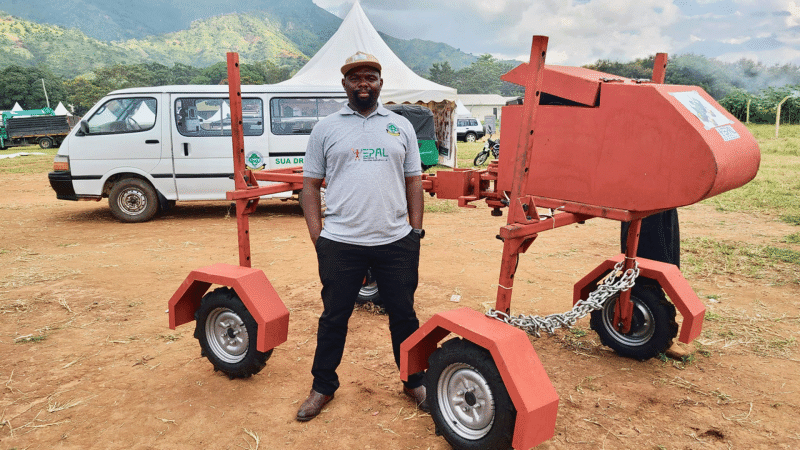
"At this event, farmers discuss about their agricultural progress and learn about news. For me and my team, it was the right place to showcase this new technology and make digital literacy, encouraging them to adopt new farming perspectives," Fue said.
Fue's agenda is already full. He is building a new collaboration with a start-up company called Neggrow Limited. Through their partnership, they plan to devise new field experiments to develop precision agriculture tools for irrigation, fertilization, and fertigation (a combination of the two).
In collaboration with Anzisha start-up, Fue is working on training programmes for students, aimed at teaching how to generate ideas and raise funds to build a start-up from scratch.
In addition, Fue is using remote sensing imagery and machine learning to help assess whether farmers are eligible for financial credit. By evaluating the quality and quantity of yield obtained in previous years, farmers may quantify their current 'farming performance', to see if they can obtain credits from financial institutions.
Cristina Serra

